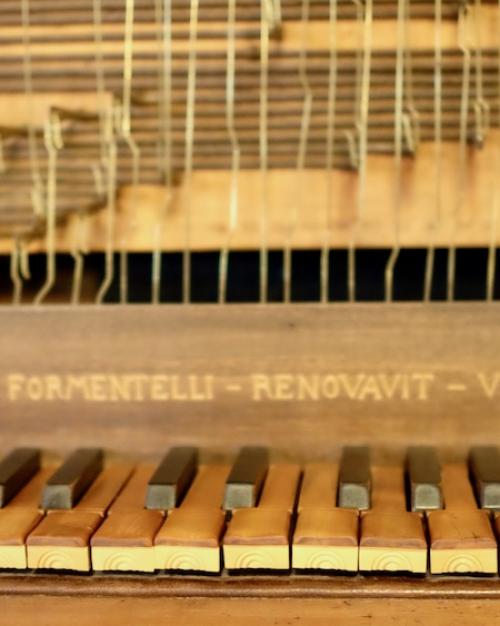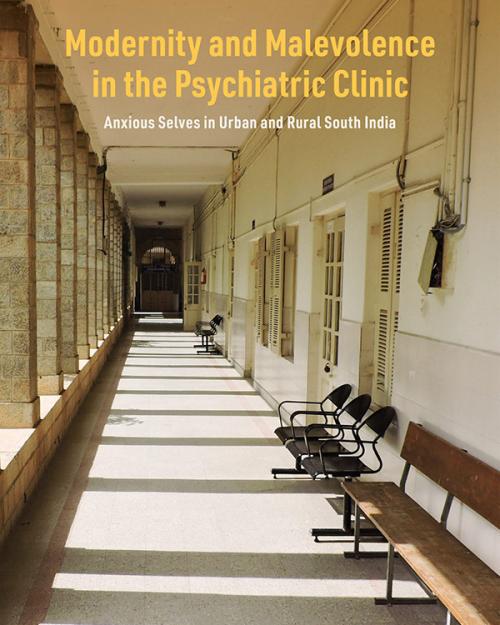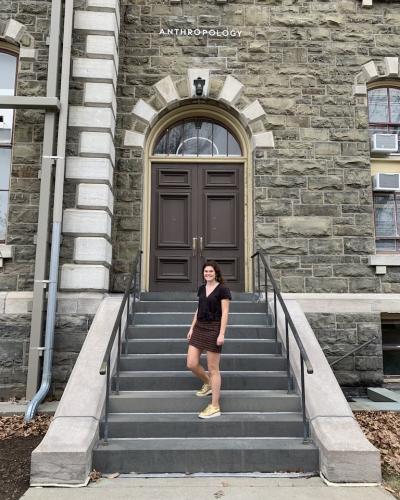Major Eve Hallock '20 reflects on her experiences at Cornell.
Eve Hallock
, Biology & Society Major
Latin American Studies Minor
What inspired you to choose ? Do you have a specific area of interest? Why is this work important?
My high school senior history teacher inspired me to apply to college and introduced me to anthropology as an applied and inclusive type of history. I also had strong interests in ecology and natural sciences. My small community in the Pacific Northwest has complex natural, indigenous, and pioneer histories that blend into modern resource conflicts, so I figured it could only be beneficial to study who people are and the parts of cultures that are universal and unique. I began to view anthropology as an opportunity to combine my original interests and form new goals in university and hopefully a future career in conservation/natural resource management. The ways in which humans interact or fail to interact with “nature” are becoming more and more politically and socially important to understand as the effects of climate change accelerate. Working with cultural communities, organizations, companies, and governments is necessary to help people preserve their livelihoods and their connections to the natural world.
Was there a particular faculty member or class that influenced you the most?
My advisor, Dr. Paul Nadasdy, has been wonderful and teaches some classic and important anthropology courses. I would highly recommend Dr. Sabrina Papazian’s classes to anyone, regardless of your career path, or field of interest. She teaches important history, practical tools, and aids in discovering connections between academia and the real world. Dr. Sherene Baugher’s archaeology classes are a lot of fun and she is a highly impressive professional to learn from. Dr. Rachel Prentice and Dr. Ananda Cohen-Aponte teach courses cross-listed with anthropology and are uplifting and amazing sources of knowledge.
Do you have any advice for students new to ?
There is more to it than ancient civilizations, problematic pasts, and bones. Take classes in all pathways of anthropology, indigenous studies, archaeology, art history, the Society for the Humanities, and beyond. is connected to every field and topic you can imagine, so it is more a matter of following the stories that interest you across departments. I found the most connection with natural resources, environmental justice, climate change, and ecology, but the possible combinations are endless.
During your time at Cornell, you must remember your lessons in persistence, reflection, and self-growth. Mistakes, forgetfulness, and failures have their purposes. Most of all, you do not have to fit in to belong. You can worry about finding people who match you, but it is those who complement you that will eventually find you.
What accomplishments/activities are you most proud of while at Cornell?
I am sad the end has arrived, but proud of the variety of classes and departments that I have academically explored, as well as finishing a senior thesis with the Cornell Lab of Ornithology and Biology & Society department. Studying abroad in the Galápagos Islands last spring already feels like a lifetime ago, and was an experience that I deeply cherish.
I have been an active member of the Cooperative Housing community for nearly my entire time at Cornell, and it has been invaluable to me. Finding a home in a place that can be so challenging makes life easier and worthwhile. The co-ops are beautiful, diverse, inspiring, fun, silly, artistic, active, musical, political, justice-driven, and friendly spaces that are necessary for so many people. I am so glad to have found them, and grateful to all the people who have become family and helped one another grow.





